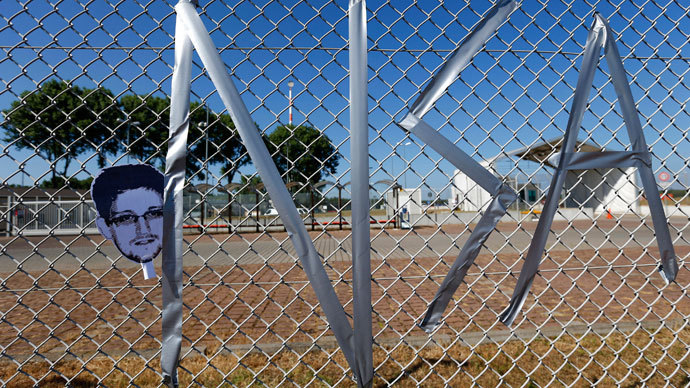Facebook and NSA privacy violations: Privacy becomes a selling point

When people are being watched, they start restraining themselves. NSA privacy violations are provoking people to flee Facebook, but where? In fact, millions of users are deserting Facebook.
This may not sound like much in the light of the site’s one billion or so users, but it is significant in terms of a trend change.
In particular, about half the people leaving Facebook cite
privacy concerns for doing so. This gives us a bit of promise for
the future. Overall, Edward Snowden's revelations have been a
tipping point where people have gone from resignation to anger.
And perhaps worse - those of us who have been warning of the
situation, and who have been discounted as complete tinfoil-hat
village idiots, turned out to have been severely underestimating
the extent of what has been going on.
When Facebook was building a new data center for Europe, it was
little surprise that a country was chosen where Facebook's usage
would be wire-tapped by the NSA's allies. In this case, by the
Swedish FRA. Facebook chose the subarctic Swedish city of Luleå,
with significant hydro power generation, for its European data
center.
On the surface, the rationale looks flawless: The Swedish
government offered very generous subsidies for Facebook to
establish itself there, power generation was nearby and stable,
and cooling for the data center came very naturally in the
subarctic climate, especially in winter. It's impossible to
criticize these grounds. But at the same time, it makes perfect
sense to pick a location where practically all Facebook usage is
also wiretapped. All traffic that leaves and enters Sweden is
controlled by the Swedish FRA, an ally of the NSA. This is
serious because it starts to change people's behavior.
When people are being watched, they behave differently. When we know that somebody is listening in on a conversation, we restrain ourselves. When we don't know whether somebody is listening in, we also restrain ourselves. Indeed, prisoners in the most horrible prisons display this very behavior - they believe they're being watched, or can be observed, all the time.

For all intents and purposes, every one of us is wiretapped. With
the help of the NSA and companies like Facebook, we're turning
society into a dystopic prison society.
Today, I choose what subjects I talk about based on how safe and
secure I perceive the communications environment to be. On
a phone line I only discuss the most superficial subjects. And
the same goes for when I’m at home, and outside on a summer day,
only wearing swimwear, whispering in windy conditions, with my
mobile phone battery taken out and the phone far away, fairly
secure. Using a number of encryption tools that I won’t mention
here, I feel fairly safe.
If I had told my teenager self that I would be behaving like
this, that teenager would probably believe I had moved to East
Germany in the 1980s.
I am not alone in thinking this way. In Germany, about half the
people say they have thought of refraining from or have already
refrained from making phone calls that could be used against them
in the future, stored in so-called "data retention". Not what
people said, just that the phone call took place at all. They
avoid calling drug addiction helplines, psychologists, even
marriage counsel services: anything that could be used against
them. This is a sign of how people's behavior is changing.
It's far too premature to talk of privacy woes being Facebook's
downfall. But nevertheless this has been a constant complaint
directed at the service. Those of us who have worked in the IT
industry for a couple of decades know that there's only one thing
that stays constant: the products and services that seem
invincible aren't; they get replaced by something else.
MySpace had 300 million users, Facebook has a billion. There are
seven billion people on the planet. What service are the next six
billion - or even the next two billion - going to use?
It's as arrogant to talk of Facebook's demise, as it is to deny the prediction of history that Facebook will, at some point, be replaced by something else. CP/M, WordStar, Fortran, and Lotus 1-2-3 seemed absolutely invincible in their day, too. And what about Borland, Corel, and ZModem?
So we'll all see what comes next. It may well be that the selling
point of the next major social system is privacy, since this is
precisely Facebook's weak spot. Seeing how people are starting to
demand that kind of privacy, revolting against the NSA and
Facebook alike, is a good sign in that direction. If so, all
society would benefit from it, perhaps starting to open those
prison doors a little.
The statements, views and opinions expressed in this column are solely those of the author and do not necessarily represent those of RT.
The statements, views and opinions expressed in this column are solely those of the author and do not necessarily represent those of RT.













